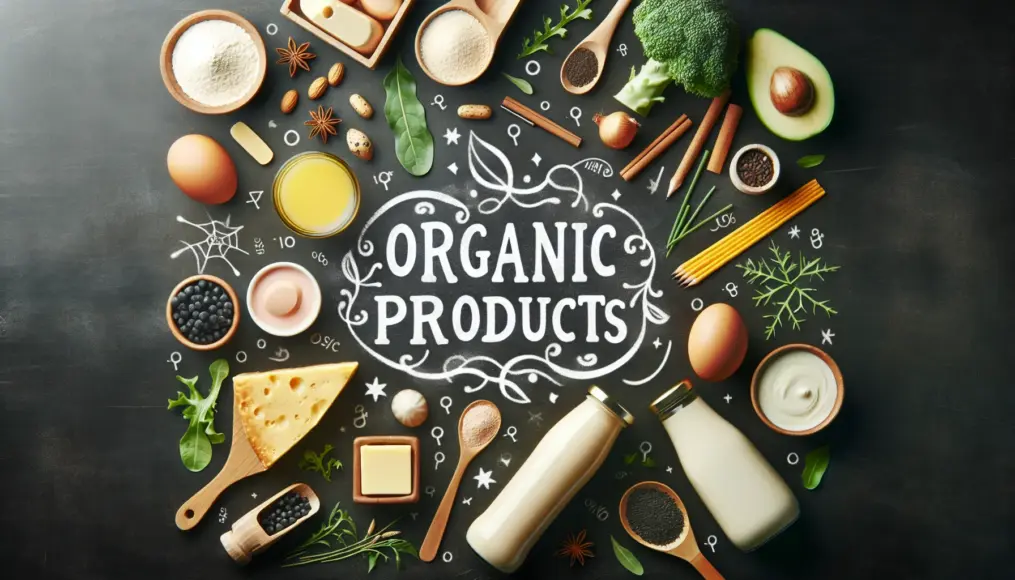Have you ever thought about organic coffee beans? Recently, with a growing awareness of health and environmental issues, the choice of organic options is gaining traction. Coffee beans that are grown without pesticides are not only kind to our bodies but also allow us to enjoy our brews with peace of mind.
In this article, we’ll delve into the appeal and health benefits of organic coffee beans, as well as how to choose the right ones for your coffee journey. By opting for organic coffee, you can make a positive impact on the environment while enriching your coffee experience.
- Understanding the Difference Between Organic and Pesticide-Free
- Health Benefits of Organic Coffee
- How to Choose Beans and Find Trustworthy Brands
What Are Organic Coffee Beans?
Organic coffee beans have become a focal point for coffee lovers everywhere. As interest in health and environmental issues grows, more people are discovering the allure of coffee beans grown without pesticides. Because these beans are cultivated without chemical fertilizers or pesticides, they are increasingly chosen as a cleaner and safer beverage option. In this section, we’ll dive into the distinctions between organic and pesticide-free coffee, as well as the methods used to grow organic coffee beans.
The Difference Between Pesticide-Free and Organic
While “pesticide-free” and “organic” are often used interchangeably, they actually have different meanings. Pesticide-free refers to agricultural products that are grown without the use of synthetic pesticides. In contrast, organic products meet specific standards in addition to being pesticide-free. This means that while pesticide-free coffee beans can be organic, not all of them necessarily are.
Choosing pesticide-free coffee allows you to avoid harmful chemicals and make environmentally friendly choices. Additionally, if the coffee is certified organic, you gain extra peace of mind.
- Pesticide-free means no chemical pesticides are used
- Organic includes pesticide-free products grown according to specific standards
- Choosing pesticide-free coffee can positively impact health and the environment
Methods for Growing Organic Coffee Beans
The cultivation of organic coffee beans emphasizes harnessing the power of nature. To maintain healthy soil, farmers typically use organic fertilizers and compost. Crop rotation is another strategy employed to replenish soil nutrients and suppress the emergence of pests and diseases. Moreover, by leveraging natural ecosystems and utilizing beneficial organisms, these farmers can protect their crops without resorting to pesticides.
Thus, organic farming methods not only avoid the use of pesticides and chemical fertilizers but also incorporate various practices to promote sustainable agriculture. As a result, this leads to the production of flavorful and nutrient-rich coffee beans.
- Use organic fertilizers and compost to maintain soil health
- Implement crop rotation to replenish soil nutrients
- Utilize natural predators to manage pests and diseases
The Health Benefits of Organic Coffee
Organic coffee is a beverage that offers numerous health benefits. Grown without the use of chemicals, organic coffee beans provide a safe and gentle choice for our bodies. In this section, we will explore the health effects of organic coffee in detail. We’ll discuss the advantages of avoiding chemicals and highlight the nutritional qualities of organic coffee, so take note!
Benefits of Avoiding Chemicals
Choosing organic coffee allows you to protect yourself from harmful chemicals. Conventional coffee beans often involve the use of pesticides and synthetic fertilizers, but organic beans are cultivated without these substances. By opting for organic, you can significantly reduce the amount of chemicals entering your body, thereby lowering health risks.
Moreover, organic coffee is grown in a way that is closer to nature, which positively influences its flavor and aroma. The ability to savor the pure taste of coffee while avoiding chemicals is a major draw for many coffee lovers.
- Reduce health risks by avoiding chemicals
- Enjoy natural flavors and aromas
- Choose coffee you can drink with peace of mind
Nutritional Benefits of Organic Coffee
Organic coffee beans are also known for their high nutritional value. Because they are grown using natural methods, they are rich in antioxidants, vitamins, and minerals. These components can help boost your immune system and assist with fatigue recovery.
Additionally, organic coffee contains a moderate amount of caffeine, providing a refreshing lift without overwhelming effects. By incorporating organic coffee into your daily routine, you can support a healthier lifestyle.
- Organic coffee is nutritionally rich
- Packed with antioxidants and vitamins
- Supports a healthy lifestyle
How to Choose Organic Coffee Beans
When it comes to selecting organic coffee beans, there are several key points to keep in mind. To make a choice that’s good for your health and the environment, it’s essential to find a trustworthy brand and understand the flavor differences among various types of beans. In this section, we’ll delve into how to choose organic coffee beans, so feel free to use this as a guide.
Finding a Trustworthy Brand
The first step in choosing organic coffee beans is to identify a reliable brand. When evaluating brands, look for organic certifications and labels indicating that the beans are pesticide-free. It’s also reassuring to find detailed information about cultivation methods and producers on the brand’s website or packaging.
Additionally, reviews and testimonials can be incredibly helpful. By considering the experiences of actual purchasers, you can more easily find organic coffee beans that suit your taste. Choosing a trusted brand allows you to enjoy delicious coffee with peace of mind.
- Check for organic certifications and pesticide-free labels
- Look for detailed information on the brand’s website or packaging
- Refer to reviews and testimonials
Types of Beans and Flavor Differences
There is a wide variety of organic coffee beans, each with its own distinct flavor profile. For instance, Arabica beans are known for their sweetness and fruity notes, while Robusta beans offer a stronger bitterness and deeper body. By selecting beans that match your taste preferences, you can enhance your coffee-drinking experience.
Moreover, even beans of the same type can have different flavors depending on where they are grown and the climate conditions. This is particularly true for organically grown beans, which often reflect the unique characteristics of their growing regions. Consider both the type of bean and its origin as you search for the perfect organic coffee for you.

If you found this article interesting, you might also enjoy our piece on “How to Choose Coffee Beans and Deepen Your Understanding of Acidity.” It provides an in-depth look at selecting coffee beans, roasting, and the characteristics of acidity, helping you further appreciate the allure of organic coffee.
- Arabica beans are characterized by their sweetness and fruity notes
- Robusta beans have a stronger bitterness and deeper body
- Enjoy the flavor variations influenced by region and climate
Embracing a Sustainable Coffee Lifestyle
Choosing organic coffee beans is not just beneficial for our own health; it also positively impacts the environment and local communities. To cultivate a sustainable coffee lifestyle, it’s essential to actively incorporate organic coffee as an environmentally friendly option. In this section, we’ll explore the environmental benefits of organic coffee and its contributions to local communities, so read on!
Organic Coffee: An Eco-Friendly Choice
Organic coffee is grown without the use of chemical fertilizers or pesticides, making it a more environmentally friendly choice. This approach minimizes the strain on soil and water sources, helping to protect our natural environment and promote sustainable agriculture. Coffee beans cultivated without these harmful substances also contribute to the preservation of soil ecosystems.
Moreover, organically grown coffee beans tend to have richer flavors that reflect the unique characteristics of their growing regions. By practicing environmentally conscious farming, we can savor delicious coffee while caring for the planet.
- Eco-friendly due to the absence of chemical fertilizers and pesticides
- Contributes to the preservation of soil ecosystems
- Enjoy rich flavors and delicious coffee
Contributing to Local Communities
Opting for organic coffee beans also supports local communities. Often, organic coffee is cultivated by small-scale farmers, and choosing these beans helps to sustain their livelihoods. When local farmers engage in sustainable practices, it revitalizes the regional economy and creates job opportunities.
Additionally, by selecting organic coffee, we endorse fair trade and local sourcing initiatives. This support leads to improved living standards for farmers, ensuring they receive fair compensation, which ultimately enriches the entire community.
- Support small-scale farmers and boost the local economy
- Encourage farmers practicing sustainable production methods
- Endorse fair trade and local sourcing initiatives
Conclusion
Organic coffee beans are a fantastic choice for both our health and the environment. By avoiding chemicals, we can enjoy a cup of coffee with peace of mind while savoring its rich nutritional benefits. Additionally, choosing organic coffee beans supports local communities and sustainable agriculture.
To enhance our coffee experience, it’s essential to identify trustworthy brands and types of beans while making environmentally conscious choices. Incorporating organic coffee beans into our daily routine can lead to a healthier, more sustainable lifestyle.
- Organic coffee beans are good for health and the environment
- They are nutritious and safe to enjoy
- A choice that supports local communities and sustainable agriculture
Why not make your daily coffee ritual a little more special with organic coffee beans? Find your favorite blend, and feel free to share your thoughts in the comments!








































Comment